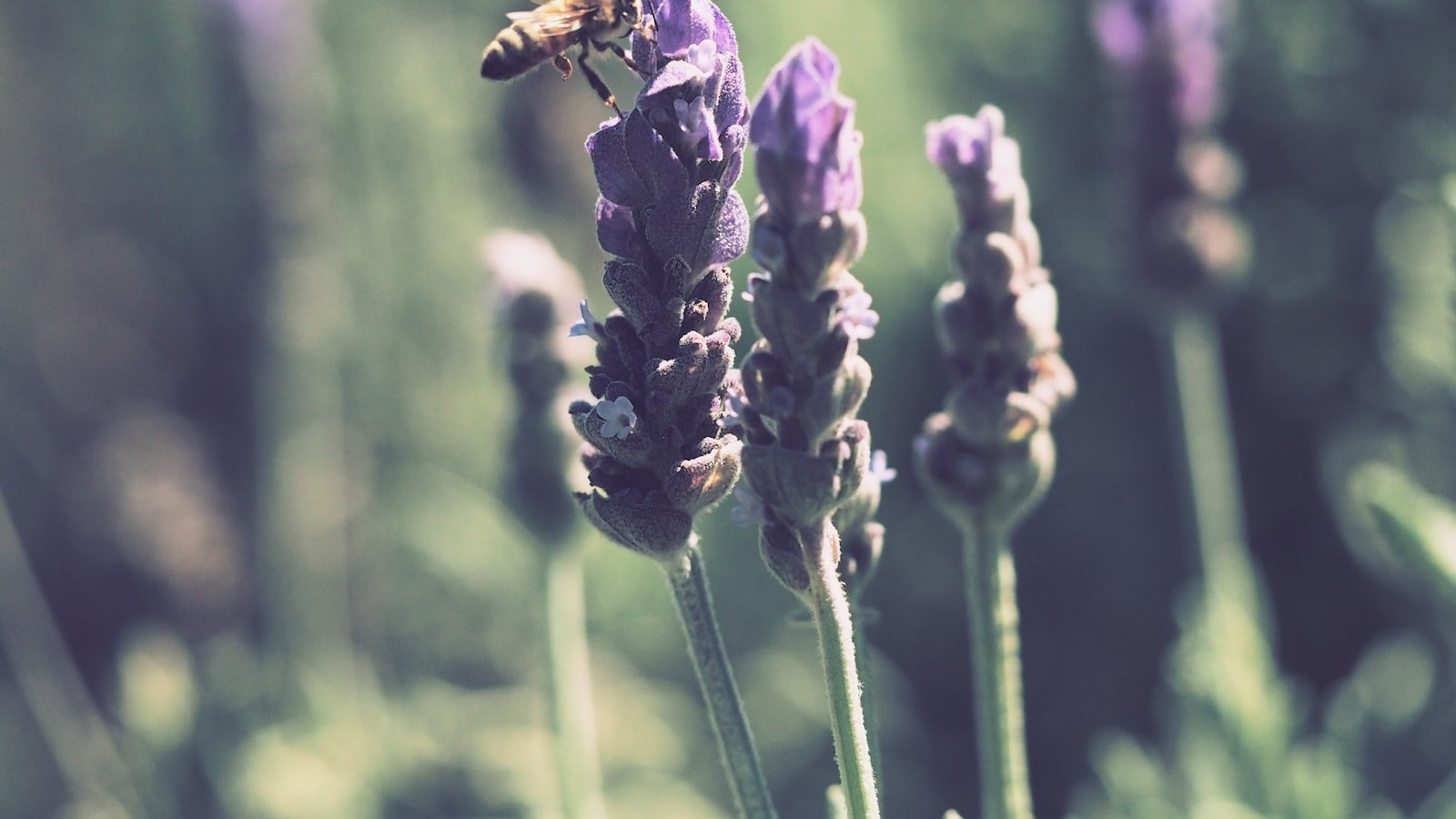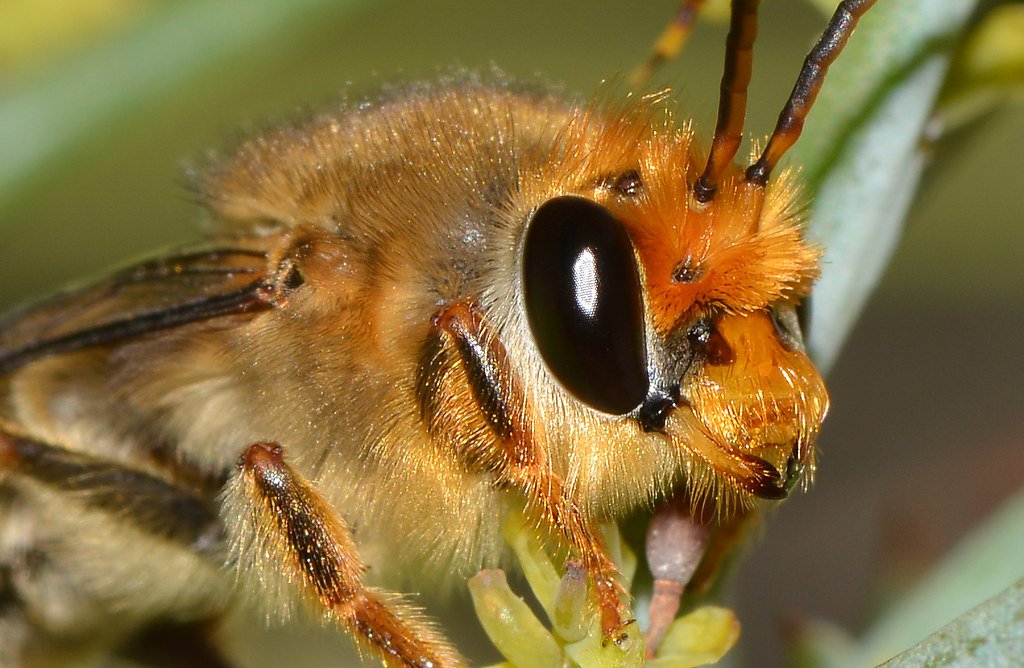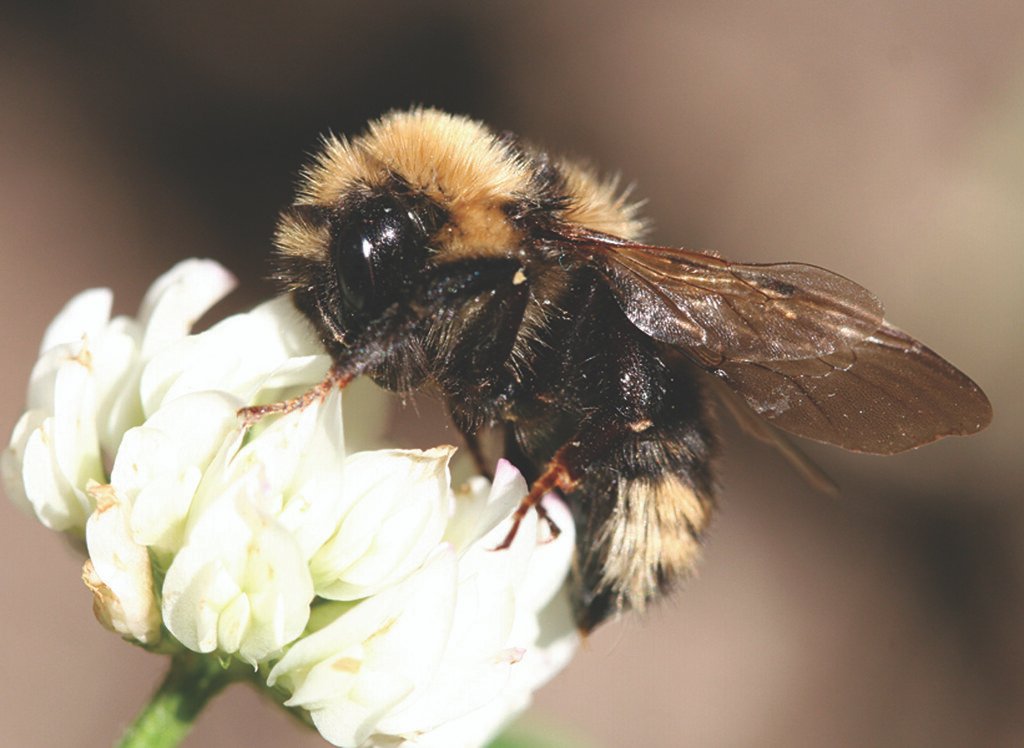Beneath vibrant meadows and amidst blossoming gardens, a hidden army tirelessly toils, pollinating our crops and ensuring the survival of our delicate ecosystems. They are the unsung heroes of nature, buzzing seamlessly from flower to flower, yet often overlooked in favor of their charismatic cousins—the honeybees. These humble and enchanting creatures that power our world are none other than the native bees. As we stand at the precipice of an ecological crisis, a profound understanding of the importance of native bee conservation becomes imperative, for in their tiny wings lie the colossal potential to sustain our food systems and preserve the intricate balance of our planet. It is time we direct our gaze towards these unsung winged warriors, uncovering the magnificence of their existence and embracing the crucial role they play in safeguarding our natural heritage.
Table of Contents
- The Importance of Native Bee Conservation:
- – The Ecological Role of Native Bees as Pollinators
- – Threats to Native Bee Populations and Ecosystem Health
- – Strategies for Promoting Native Bee Conservation
- – Creating Bee-friendly Habitats: Tips and Recommendations
- – The Role of Public Awareness and Education in Native Bee Conservation
- Q&A
- Key Takeaways

The Importance of Native Bee Conservation:
Native bee conservation is crucial for maintaining the delicate balance of ecosystems and ensuring the sustainability of our planet. These little pollinators play a significant role in the fertilization of flowers, fruits, and vegetables, thereby enabling the growth of diverse plant species. Unlike honeybees, which are introduced species, native bees have evolved alongside native plants and have specialized relationships with them. Hence, their preservation is paramount in preserving the biodiversity of our surroundings.
The importance of native bee conservation can be highlighted through the following points:
- Pollination Efficiency: Native bees are highly efficient pollinators due to their co-evolution with native plants. Their unique behaviors and adaptations make them experts in transferring pollen. They have evolved to vibrate their flight muscles at specific frequencies, which helps in dislodging pollen from flowers, increasing successful pollination. This efficiency is essential for achieving optimal crop yields and sustaining the natural reproductive processes of various plant species.
- Biodiversity Conservation: Native bees are essential contributors to the overall biodiversity of an ecosystem. By pollinating a wide variety of plant species, they aid in seed production and plant reproduction, ensuring the survival of numerous plant populations. Moreover, the entire food chain in an ecosystem relies on the availability of diverse plant life, making native bee conservation crucial for the sustenance of countless other organisms.
- Resilience to Environmental Changes: Native bees have adapted to local climates and habitats over thousands of years. Their ability to thrive in specific environmental conditions makes them more resilient to changes such as temperature fluctuations and habitat disruption. By protecting native bee populations, we not only safeguard their specific habitats but also enhance the resilience of entire ecosystems against the impacts of climate change and other environmental challenges.
Preserving native bees through conservation efforts, habitat restoration, and reduction in pesticide use is essential to ensure a healthy and flourishing ecosystem. Their conservation is not only a responsibility towards these incredible creatures but also an investment in the future of our environment and the invaluable services they provide.

– The Ecological Role of Native Bees as Pollinators
The Ecological Role of Native Bees as Pollinators
Native bees play a crucial ecological role as pollinators in our natural ecosystems. These hardworking insects are essential for the successful reproduction of numerous plant species, making them vital for maintaining biodiversity. Unlike honeybees, which are non-native and mostly tend to commercial crops, native bees focus on native plants, ensuring the survival and propagation of these invaluable species.
Why are native bees such effective pollinators? Firstly, many native bee species have co-evolved with native plants, resulting in highly specialized relationships. Their finely-tuned adaptations allow them to gather pollen more efficiently, ensuring higher pollination rates. Furthermore, native bees often exhibit different foraging behaviors compared to honeybees. Some species are particularly effective at buzz pollination, where they vibrate their bodies at a specific frequency to release pollen from flowers that would otherwise remain inaccessible.
The importance of native bees goes beyond their pollination services. These buzzing wonders also contribute to the overall health and resilience of ecosystems. By encouraging the growth and diversity of native plants through their pollination activities, native bees provide food and habitat for numerous other organisms, including birds and insects. They also support the web of life by contributing to nutrient cycling and soil fertility through the dispersal of pollen and the decomposition of organic matter.

– Threats to Native Bee Populations and Ecosystem Health
Threats to Native Bee Populations and Ecosystem Health
Native bees are an essential component of ecosystems worldwide, providing pollination services crucial for the reproduction of countless plant species. However, these invaluable pollinators face numerous threats that jeopardize their populations and overall ecosystem health. Some of the most pressing challenges they confront are:
- Habitat Loss: Native bees rely on diverse and intact natural habitats for nesting, foraging, and survival. With the expansion of urban areas, intensive agriculture, and deforestation, these crucial habitats are rapidly diminishing, leaving bees with limited resources.
- Pesticide Exposure: The pervasive use of pesticides, particularly neonicotinoids, poses a significant threat to native bee populations. Exposure to these harmful chemicals can lead to decreased reproductive success, impaired foraging abilities, and even mortality.
- Invasive Species: The introduction of non-native bee species can disrupt native bee communities by competing for limited food resources or spreading diseases. Invasive species can outcompete native bees, resulting in a decline in their populations.
- Climate Change: The changing climate has a profound impact on native bees. Shifts in temperature, precipitation patterns, and seasonal timings can disrupt the synchronization between bees and the flowering plants they depend on, leading to a decline in pollination efficiency and potential food shortages.
Addressing these threats is crucial for the conservation of native bee populations and the overall health of ecosystems. Efforts must be made to protect and restore their habitats, promote sustainable farming practices that reduce pesticide use, and mitigate the impacts of climate change. By safeguarding native bee populations, we not only ensure the survival of these remarkable creatures but also help maintain the delicate balance of our natural world.
– Strategies for Promoting Native Bee Conservation
Strategies for Promoting Native Bee Conservation
When it comes to preserving the well-being of our native bee populations, there are several impactful strategies that can make a significant difference. By implementing these measures, we can create habitats that support these crucial pollinators and protect them for generations to come.
First and foremost, it’s essential to provide a diverse range of native plants that serve as valuable food sources for bees. These plants can include wildflowers, shrubs, and trees, each offering unique nectar and pollen rewards. By cultivating a variety of blooming plants throughout the year, we ensure a continuous supply of sustenance for our bee friends.
Additionally, creating nesting sites is crucial for native bee conservation. Many species of native bees nest in the ground, while others prefer hollow stems or holes in trees. To accommodate their needs, leave patches of bare soil or create artificial nests using materials like bamboo or drilled wooden blocks. These efforts will encourage bees to establish their homes and reproduce, thus strengthening their population.
Incorporating pesticide-free gardening practices is also pivotal for native bee conservation. Eliminating or reducing the use of harmful chemicals will prevent accidental bee deaths and preserve their health. Instead, explore organic methods of pest control, such as companion planting or introducing beneficial insects that prey on pests.
By implementing these strategies and raising awareness about the importance of native bees, we can foster an environment that ensures their survival and contributes to the overall health of our ecosystems.
– Creating Bee-friendly Habitats: Tips and Recommendations
Creating Bee-friendly Habitats: Tips and Recommendations
Tips for Creating a Bee-friendly Habitat:
- Plant native flowering plants: Choose a variety of native flowers, such as lavender, sunflowers, and coneflowers, that provide a diverse and continuous source of nectar and pollen throughout the year.
- Provide water sources: Place shallow dishes or birdbaths filled with water in your garden to provide bees with a place to drink and cool down.
- Avoid pesticides: Opt for natural pest control methods and avoid using chemical pesticides, as they can harm bees and other beneficial insects.
- Create nesting sites: Leave patches of bare soil or build small bee houses to provide nesting sites for solitary bees and bumblebees.
Recommendations for a Bee-friendly Environment:
- Practice responsible landscaping: Limit the use of turfgrass and instead create natural meadows or wildflower areas that attract bees and other pollinators.
- Leave some wildlife-friendly spaces: Allow a small part of your garden to grow wild, with untrimmed grass, fallen logs, and brush piles, offering a sheltered habitat for bees.
- Inform and involve your community: Educate your neighbors about the importance of bees and encourage them to create bee-friendly habitats in their gardens as well.
By following these tips and recommendations, you can make a positive impact on the bee population while enhancing the beauty and biodiversity of your garden.
– The Role of Public Awareness and Education in Native Bee Conservation
Public awareness and education play a crucial role in the conservation of native bees, promoting understanding and action towards their protection. By raising awareness, individuals and communities can appreciate the significant role that native bees play in our ecosystem as pollinators, ensuring the survival of plants and crops. Education is key in dispelling misconceptions and highlighting the importance of preserving these essential creatures.
Creating public awareness and education programs can be achieved through various means. These can include:
- Organizing workshops and seminars to inform the general public about native bees’ biology, habitat requirements, and conservation challenges.
- Collaborating with schools to incorporate lessons about native bees into the curriculum, fostering a sense of environmental responsibility from an early age.
- Conducting public campaigns through social media, television, and print media, sharing fascinating facts and tips on how individuals can contribute to native bee conservation efforts.
Moreover, emphasizing the role of ordinary citizens in native bee conservation is crucial. Informing individuals about simple actions they can take, such as planting native flowering plants in their gardens or creating nesting sites, can make a significant impact. This collective effort can contribute to the preservation and restoration of native bee populations, helping to ensure a sustainable future for both these incredible creatures and our planet.
Q&A
Why is native bee conservation important?
Conserving native bees is vital because they are exceptional pollinators, playing a crucial role in maintaining biodiversity and food security. They have co-evolved with native plants and are more effective at pollinating them than non-native honeybees.
How do native bees differ from honeybees?
While honeybees are not native to every region, native bees are local inhabitants that have adapted to specific ecosystems. Native bees have diverse ecological roles, such as buzz-pollinating certain flowers or being solitary nesters, making them important for ecosystem health.
What are the threats to native bee populations?
Native bees face numerous threats, including habitat loss, pesticide use, climate change, and the introduction of non-native bees, which can compete for resources and spread diseases. These factors have caused declines in many native bee species around the world.
How can we promote native bee conservation?
There are several ways to promote native bee conservation, such as creating suitable habitats by planting native flowers and providing nesting sites. Limiting pesticide use, supporting organic farming practices, and raising awareness about the importance of native bees are also crucial steps.
What are the benefits of conserving native bees?
Conserving native bees not only ensures the pollination of wild plants, but also supports agricultural crops. By protecting native bee species, we safeguard the genetic diversity of ecosystems, enhance food production, and maintain the delicate balance of nature.
Can I create a native bee-friendly garden?
Absolutely! Planting a diverse range of native flowers that bloom at different times throughout the year can attract and support native bees. Providing a variety of nesting materials like hollow twigs, bee hotels, or undisturbed soil can also encourage them to make your garden their home.
Key Takeaways
As we reach the end of our exploration into the captivating world of native bee conservation, we pause to appreciate the beauty and significance of these extraordinary creatures. Through the delicate dance of their wings and their tireless efforts as pollinators, native bees hold the key to the preservation of our precious ecosystems.
In an era where climate change threatens the very fabric of our environment, the urgency to protect these remarkable creatures has never been greater. By safeguarding their habitats, promoting sustainable beekeeping practices, and raising awareness among communities, we can all contribute to the conservation of native bee populations.
Imagine a world without the familiar hum of bees, a world devoid of vibrant flowers, and bountiful harvests. It is indeed a bleak picture, one that can only be prevented by embracing the importance of native bee conservation.
As we reluctantly bid farewell to these pages, let us remember that we are not powerless in the face of this ecological challenge. Each of us possesses the ability to make a difference, no matter how small. A single flower planted, a pesticide avoided, or a tiny act of kindness towards these insects can ripple across the planet, igniting a wave of change.
So, let us unite as stewards of the Earth, standing shoulder to wing with our native bee allies. Together, we can forge a future where these extraordinary creatures thrive, where the harmony of nature is preserved, and where our world flourishes with life.
As you embark on your journey beyond this article, carry with you a newfound appreciation for these unsung heroes of the natural world. Seek out the buzzing melodies that permeate our landscapes, observe with wonder the secret lives of these tiny pollinators, and marvel at the intricate connections they weave within the tapestry of life.
For in the story of native bee conservation, lies an enduring tale of resilience, of hope, and of our own collective ability to protect and cherish the fragile wonders that surround us. Let us embrace our role as custodians of these mystical creatures, forever grateful for their gentle presence and unwavering dedication to our planet.
Farewell, dear reader, and may the wings of native bees guide us towards a harmonious future, where their invaluable legacy lives on, as enduring as the sweet nectar they tirelessly bestow upon our world.
As an affiliate, my content may feature links to products I personally use and recommend. By taking action, like subscribing or making a purchase, you’ll be supporting my work and fueling my taco cravings at the same time. Win-win, right?
Want to read more? Check out our Affiliate Disclosure page.